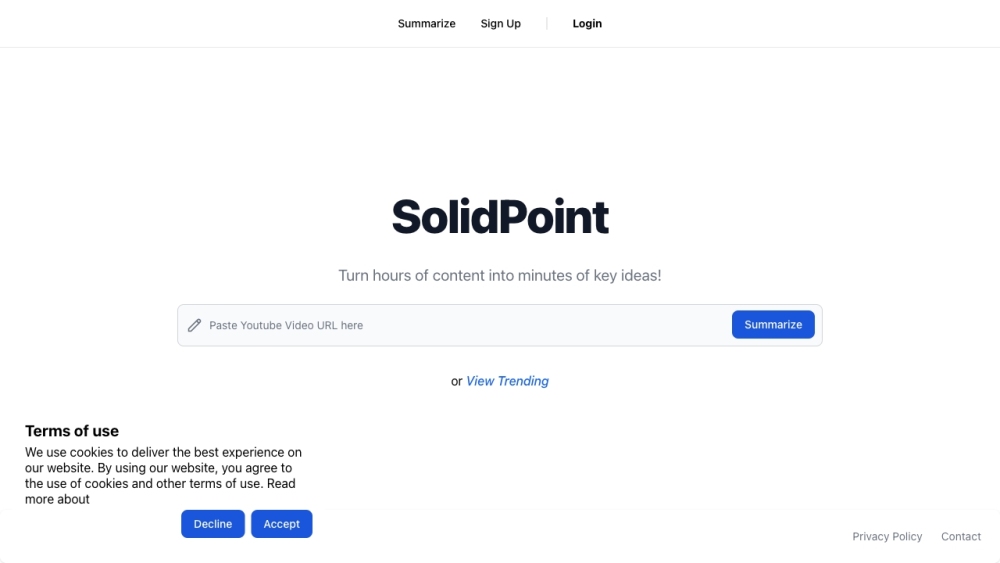AI Recruitment Tool for UK Military Hosted by Amazon 'Presents Data Breach Risks'
Most people like

SolidPoint enables users to save time by transforming lengthy videos into concise, informative summaries. This innovative tool streamlines content consumption, making it easier to grasp key insights quickly.

Introducing a powerful Multi-AI toolkit designed for transforming voice and language. This innovative solution harnesses the latest advancements in artificial intelligence to enhance communication by seamlessly converting and optimizing vocal and textual content. Whether for personal use or professional applications, this toolkit offers unparalleled versatility in language and voice modifications.

Flamme empowers couples to deepen their connection through thoughtfully crafted questions and unique date ideas. Discover more about each other while exploring new experiences together.

Enhance your visuals effortlessly with insMind AI Image Expander. Our innovative tool allows you to expand images and backgrounds in any direction, preserving their context and quality. Perfect for adapting visuals to various platforms, it ensures your images remain sharp and well-fitted without distortion.
Find AI tools in YBX



